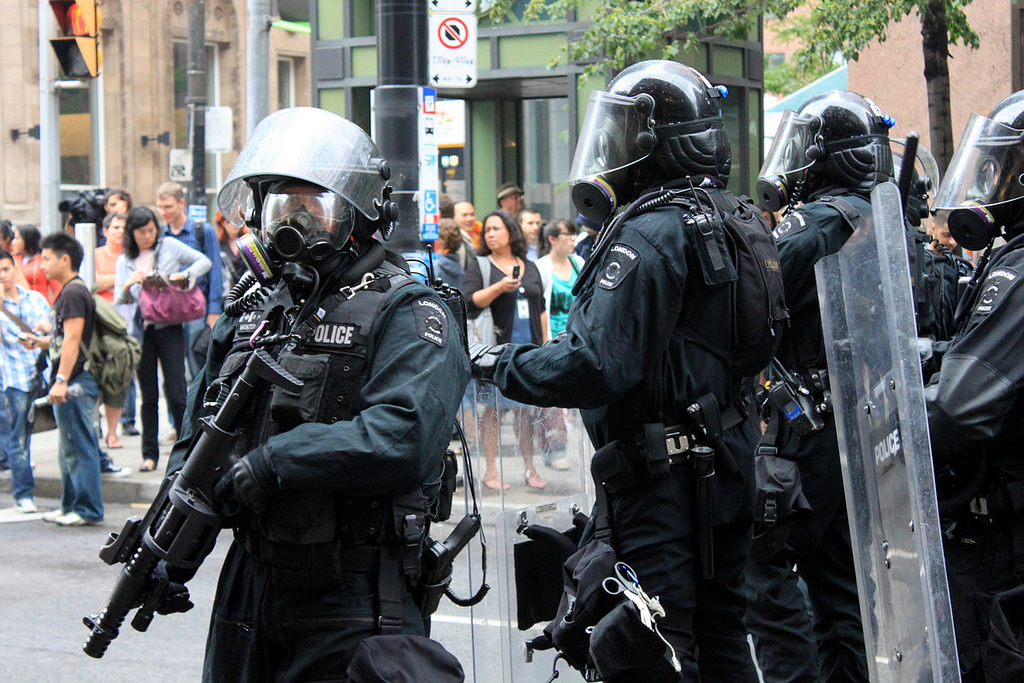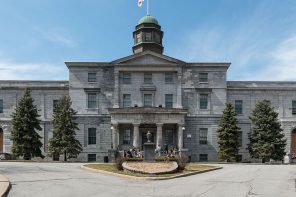On November 8, the Black Students’ Network and Media@McGill came together to hold a panel discussion entitled “Opposing Racial Profiling and Police Violence.” The discussion featured Robyn Maynard, Andrea Ritchie, and Desmond Cole, and was moderated by Dr. Rachel Zellars. Maynard, a scholar, community organizer, and author, Ritchie, a US-based attorney and author, and Cole, a Toronto-based journalist and activist, shared their perspectives on the systemic patterns of violence affecting the Black communities of Toronto and Montreal.
“There is a legacy of racialized violence in Montreal and Canada,” Maynard first stated. Montreal, she reminded the audience, was once a space where public lynchings in the Old Port and slave ownership were commonplace. Although these explicit forms of racialized violence have since been outlawed, Maynard argued that Black people still “live in a different Montreal than others do.” Racial violence is maintained in part through “geographies of injustice” in specific areas, such as Montreal North, where the voices of Black people are trivialized relative to those of white people.
Despite activists’ efforts to raise awareness of these “daily rituals of violence” that people of color across Canada face, racial profiling and police brutality remain a common occurrence for the Black community. In 2016, Dafonte Miller, for instance, was beaten with an iron bar by an off-duty Toronto police officer and lost an eye. The gravity of these instances of racism at the hands of police is minimized in media and politics. As a consequence, it is not framed as the local crisis it should be, Maynard explained.
Desmond Cole commented that the Black community is expected to be grateful for public initiatives taken to improve their security, despite the unlikely odds of their success. In Toronto, for instance, the municipal government’s attempts to redefine the role of police have been met by protest from the Toronto Police Association, according to Cole. This aversion to change on the part of Toronto police hinders the possibility of reducing racial policing and violence in the city.
“The accountability process in Toronto is a setup,” Cole continued. On the one hand, “police take advantage of fabricated fear to justify their hold on power” to a point where “violence has become inseparable from their job description”. On the other hand, members of the force sit on the boards which are meant to answer for their own wrongdoings, giving any complaint against them slim chances of being resolved, Cole asserted. This dissuades victims of police violence, especially those which are racially charged or motivated, from coming forward at all. Thus, their struggle is rendered invisible.
Gendered forms of policing likewise lack visibility in contemporary public discourse across the United States and Canada, Andrea Ritchie added. Gender-based violence, driven by white supremacy and anti-Black racism, is systematically overlooked by scholars and media, who predominantly focus on the experiences of Black men. Ritchie called for greater consideration of the “intersection of experiences” of all genders within the Black community. This is crucial to fully understanding the scope of the violence it faces as a whole, Ritchie noted.
The speakers affirmed that the erasure of the Black community’s experiences in Canada, both past and present, is further perpetuated by their omission from the education system. McGill, for instance, does not offer history classes examining the reality of being Black in Canada in a post-slavery society. “We’re raised to believe that anti-Blackness is very US-centric.” They argued that in reality, racism is as pervasive in Canada as it is in the United States.
“Getting to know your story is very healing,” Ritchie concluded, “which is why it should be put forward more.”








